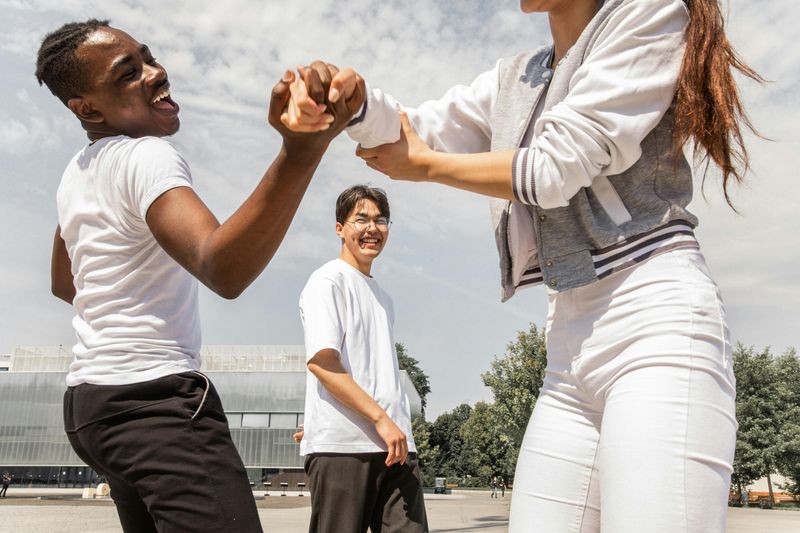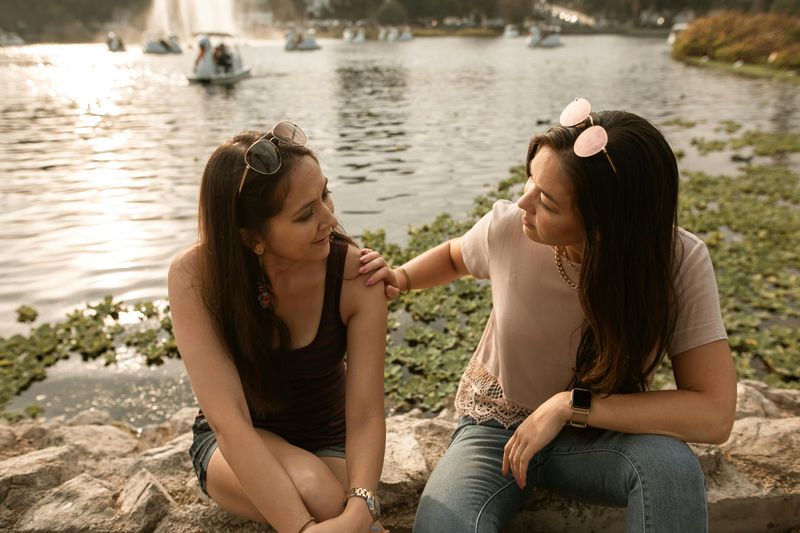15 Relationship Types That Shape Your Life—For Better or Worse

Relationships are the invisible threads that weave through our daily lives, influencing our happiness, health, and sense of belonging. From the moment we’re born to our final days, the connections we form with others define our experiences and mold our identities. Understanding these different relationship types can help you recognize patterns, make better choices, and build stronger bonds with the people who matter most.
1. The Toxic Partnership

Red flags often wave unnoticed in these relationships as criticism, jealousy, and control masquerade as care and concern. Your confidence slowly erodes while anxiety builds, leaving you walking on eggshells around someone who should make you feel safe.
Friends might notice the changes in you before you recognize them yourself. The emotional toll manifests physically—sleep problems, headaches, and a constant knot in your stomach become unwelcome companions.
Breaking free requires recognizing your worth isn’t determined by someone else’s treatment of you. The healing process takes time, but rebuilding your life after a toxic relationship often leads to newfound strength.
2. The Mentor-Mentee Connection

When someone who’s already traveled your road offers support, personal growth can soar. The best mentors don’t just pass on knowledge—they offer perspective, helping you tackle the gray areas experience alone reveals.
The best mentoring relationships evolve naturally, built on mutual respect rather than forced formality. Your mentor sees potential in you that you might not recognize yet, pushing you beyond comfortable boundaries toward genuine achievement.
Studies show people with mentors earn more money, receive more promotions, and report greater career satisfaction. This relationship often transforms into a lasting friendship as you develop from student to peer, perhaps eventually becoming a mentor yourself.
3. The Family Ties That Bind

With family, there’s always a backdrop of shared history and ingrained expectations shaping how you relate. These early bonds lay the groundwork for your understanding of love, trust, and conflict resolution.
Blood relatives share not just genetics but cultural traditions and family stories that shape your sense of identity. Even in difficult family dynamics, these bonds often prove remarkably resilient through life’s challenges.
Modern families take countless forms beyond traditional structures, proving that love and commitment matter more than legal definitions. Finding the right balance between honoring family connections while establishing healthy boundaries remains one of life’s most important skills.
4. The Work Spouse Phenomenon

Office life creates a unique relationship with that colleague who gets your workplace frustrations without explanation. This platonic partnership makes Monday mornings bearable through inside jokes, lunch breaks, and silent eye contact during tedious meetings.
Your work spouse understands the politics and personalities of your professional world in ways even your actual partner can’t. Together you celebrate wins, strategize solutions, and provide emotional support during challenging projects.
Boundaries matter in these relationships—keeping things professional while still maintaining genuine friendship. When nurtured appropriately, work spouse connections improve job satisfaction and productivity while creating a support system that makes work feel less like, well, work.
5. The Growth-Focused Partnership

There are relationships that ignite mutual growth—where each person lifts the other up. In these connections, triumphs are met with shared pride, and feedback is a tool for support, not judgment.
Communication flows openly as both people view challenges as opportunities to strengthen their bond rather than threats to it. You feel simultaneously accepted for who you are today and encouraged toward who you might become tomorrow.
These relationships require mutual commitment to personal development and relationship health. The effort pays off through deeper connection, as growing individually creates space for the relationship itself to evolve rather than stagnate over time.
6. The Childhood Friend Bond

Those friends from your earliest years hold a special place in your life. They knew you before you became who you are today, sharing playground adventures and neighborhood secrets.
This connection often serves as an anchor to your authentic self, reminding you of your roots when life gets complicated. Even with years or miles between meetings, you can often pick up right where you left off.
Research shows these early friendships help develop social skills that shape all future relationships. The shared history creates a unique understanding that new friends, no matter how close, simply cannot replicate.
7. The Distant But Devoted Friend

Time and distance mean little in certain friendships. Even after months or years apart, the bond remains steady, offering deep comfort and mutual understanding.
Technology helps bridge geographic gaps, but the foundation of these relationships existed long before video calls and text messages. The comfort comes from mutual understanding that life’s demands sometimes prevent regular contact without diminishing the connection.
Research confirms quality matters more than quantity in friendship. That friend who remembers your birthday after ten years or calls exactly when you need support proves that emotional bonds transcend physical presence in ways that enrich your life immeasurably.
8. The Competitive Friendship

Friendly rivalry can push you toward excellence when balanced with genuine support. At its best, this relationship motivates both people to achieve more than either would alone through positive competition.
Warning signs appear when celebration of the other’s success becomes difficult or one-upmanship takes center stage in conversations. The line between healthy competition and harmful comparison often blurs without careful attention.
Finding ways to complement rather than compete with each other’s strengths creates the most sustainable dynamic. When handled with self-awareness and good humor, competitive friendships can drive personal growth while maintaining the supportive foundation that makes friendship valuable in the first place.
9. The Healing Presence

Certain people possess an almost magical ability to calm your nervous system just by being nearby. Their presence creates a safe harbor where you can drop pretenses and simply exist without judgment or expectation.
These relationships often develop during life’s hardest chapters when someone shows up consistently while others disappear. The comfort comes not from perfect advice but from quiet companionship that makes pain feel less isolating.
Neuroscience explains this phenomenon through co-regulation—their steady emotional state literally helps regulate yours. Among life’s greatest treasures is finding someone whose mere presence soothes your soul during storms and amplifies your joy during celebrations.
10. The Seasonal Connection

Not all meaningful relationships last forever, and that’s perfectly okay. Seasonal connections serve important purposes during specific life chapters, bringing exactly what you need during particular transitions or challenges.
College friendships, pregnancy support groups, or colleagues from special projects often fall into this category. The intensity feels permanent while you’re in it, but naturally fades as life circumstances change.
Learning to appreciate these relationships for their purpose rather than mourning their natural conclusion allows for gratitude instead of regret. Recognizing which connections are meant to be seasonal versus lifelong helps you invest your emotional energy wisely while still honoring the value each relationship brings.
11. The Unconditional Animal Bond

The relationship between humans and animal companions creates a unique emotional safe space. Pets offer judgment-free affection that doesn’t depend on your accomplishments, appearance, or social status.
This unconditional acceptance provides psychological benefits science continues to document—from lowered blood pressure to reduced anxiety. Many people find themselves sharing thoughts with furry friends they wouldn’t tell another human.
The grief when losing an animal companion often surprises people who haven’t experienced this bond. While some might dismiss it as “just a pet,” those who understand recognize these relationships create real attachments that shape our emotional lives in profound and lasting ways.
12. The Energy Vampire Dynamic

You feel emotionally wiped out after every interaction, dreading their name on your screen. These relationships drain you with endless drama, negativity, or the burden of doing all the emotional heavy lifting.
Unlike openly toxic relationships, energy vampires often present themselves as victims needing rescue or friends seeking advice they never follow. The pattern repeats: they drain your resources while offering little support in return.
Setting boundaries becomes essential self-protection. Learning to recognize these dynamics helps you limit exposure without unnecessary guilt. Some energy-draining relationships can be managed with clear limits, while others may need to end completely for your emotional well-being.
13. The Spiritual Connection

There are relationships that feel instantly familiar, as though you’re not meeting someone new but reconnecting with someone you’ve always known.
Spiritual connections create space for vulnerability about life’s biggest questions without fear of judgment. Together you explore meaning, purpose, and values that shape your approach to living.
Whether found through religious communities, shared practices like meditation, or unexpected encounters with kindred spirits, these relationships nourish parts of yourself that material success cannot satisfy. They remind you that human connection exists beyond the visible world in ways that defy simple explanation but enrich life immeasurably.
14. The Mirror Relationship

Certain people reflect back aspects of yourself you struggle to see clearly—both wonderful qualities and challenging patterns. These relationships function as living mirrors, revealing your blind spots through interactions that trigger strong reactions.
What irritates you most about someone else often points to unacknowledged traits within yourself. The person who seems “too sensitive” highlights your own emotional walls; the “workaholic” reflects your fears about relaxation.
Growth comes from recognizing these reflections instead of blaming the mirror for what it shows. With self-awareness, mirror relationships become powerful teachers rather than sources of frustration, offering opportunities for self-knowledge that few other connections provide.
15. The Unexpected Teacher

Life’s most powerful lessons often come from people you never expected to influence you. The difficult boss, challenging neighbor, or even brief encounter with a stranger can spark profound insights that reshape your perspective.
These relationships rarely feel comfortable in the moment. The colleague whose different approach initially frustrates you might eventually expand your thinking; the child who tests your patience teaches lessons about your own emotional regulation.
Looking for wisdom in unexpected places transforms potentially negative interactions into growth opportunities. Some of your most significant teachers won’t have formal titles or even realize the impact they’ve made, yet their influence continues long after the relationship itself has ended.

Comments
Loading…